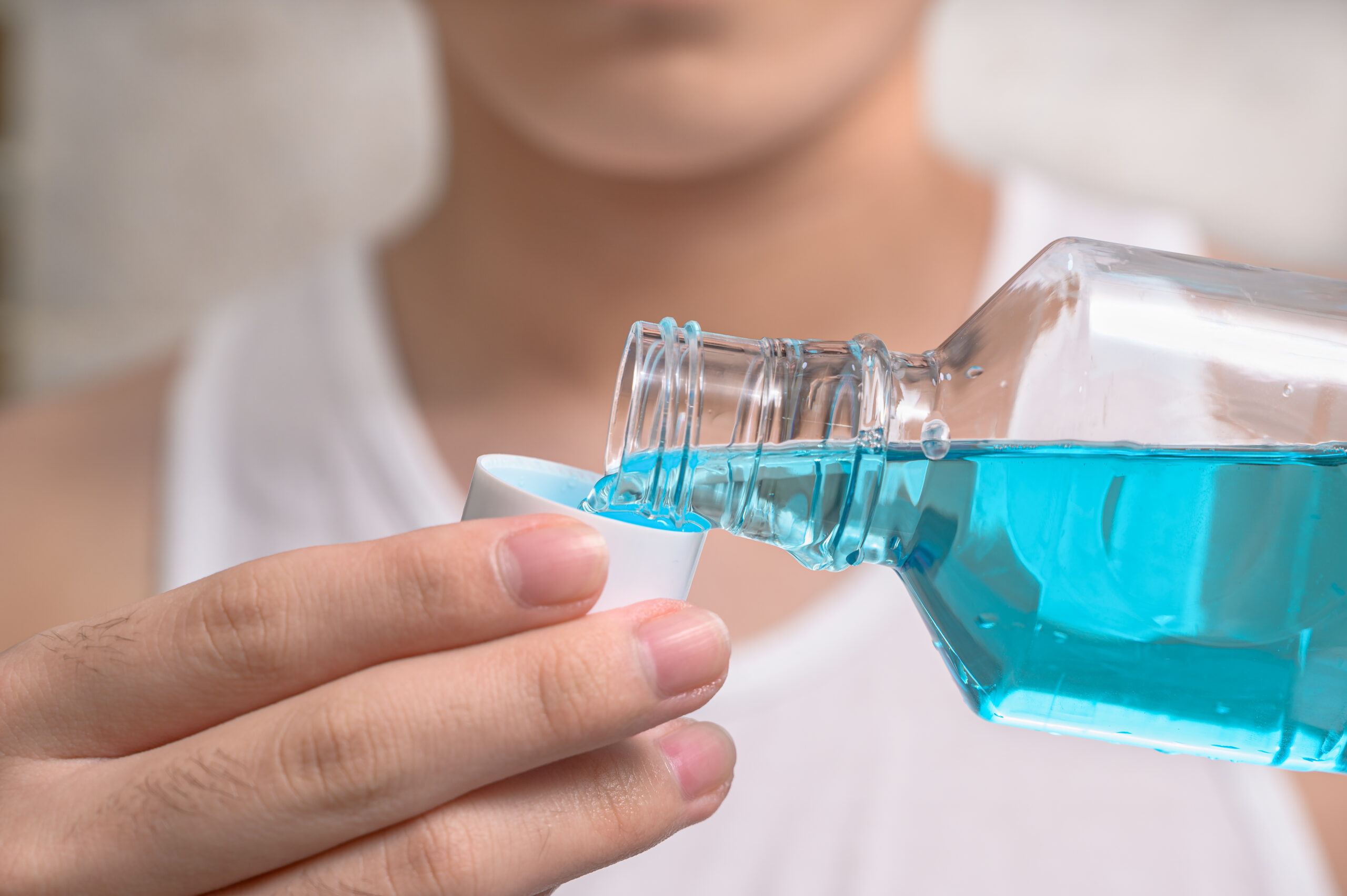
The Ultimate Guide to Mouthwash: Benefits, Uses, and Choosing the Right One
When it comes to oral hygiene, many methods come to mind for keeping your mouth clean. Regular brushing and periodic flossing are among the most commonly preferred methods. Expert dentists recommend adding methods like mouthwash to the usual oral care options.
Many people have come across mouthwash in various stores, from supermarkets to pharmacies. Produced in different types and colors, this product has gained popularity and is now as commonly used as toothpaste.
However, if you are not a regular mouthwash user, it is natural to feel confused. To clear up this confusion, we have prepared a comprehensive guide for you! In this content, you will find answers to questions such as what mouthwash is, what it does, and how to use it.
What is Mouthwash?
Mouthwash is a liquid solution developed using various active ingredients. Expert dentists recommend that mouthwash be included in your oral care routine. Traditionally, mouthwashes are used to reduce bad breath and strengthen gum health. Additionally, they are preferred for reducing cavities and other issues.
There are different types of mouthwash produced to meet specific needs:
- Fluoride mouthwash
- Cosmetic mouthwash
- Antiseptic mouthwash
- Natural mouthwash
Using mouthwash indiscriminately is not advisable. You should decide which of the above options is right for you in consultation with your dentist.
What Does Mouthwash Do?
We consume many foods throughout the day. Even if we brush our teeth regularly, food particles can stick to our teeth. Dental floss is also not entirely sufficient to remove these residues. In such cases, mouthwash is the product that helps enhance oral hygiene. While the primary function of mouthwash is this, different forms of the product also serve other purposes.
Common uses of mouthwash include:
- Helps protect teeth from cavities.
- Prevents the formation of bacteria in the mouth.
- Eliminates bad breath.
- Provides gum care.
- Serves as a rinse for sensitive teeth.
Does Mouthwash Help with Infections?
Mouthwashes are created by mixing different forms of ingredients. The most common form is antiseptic mouthwash. These products, which often contain alcohol, are used to stop bacterial growth.
Mouthwash helps eliminate bacteria that cause oral infections and bad breath. Dentists recommend using mouthwash alongside routine oral care products. Excessive use can cause discoloration of the teeth, so it should be used carefully.
How to Use Mouthwash?
If you are a regular mouthwash user, you know how to use it. Most people prefer to use it after their daily dental care routine. They rinse their mouth for a few minutes and then spit out the liquid. But how correct is this almost traditional use? How should mouthwash be used properly?
- Carefully read and follow the manufacturer’s instructions.
- Use twice a day and shake the bottle for 30 to 60 seconds before opening.
- Hold the mouthwash in your mouth for no more than 30 seconds. Be careful not to swallow it.
- Spit out the mouthwash.
In addition to general use, the timing of mouthwash use is a topic of discussion. Dentists often recommend using it in the morning and evening. If you use a fluoride mouthwash, you should use it before brushing your teeth. This is because toothpaste contains much more fluoride than mouthwash. If you use mouthwash after brushing, you remove the fluoride from the toothpaste off your teeth.
Children can also use mouthwash like adults. In such cases, ensure that the mouthwash is specially designed for children.
Advantages of Using Mouthwash
Using mouthwash correctly and regularly not only meets your basic needs but also provides the following benefits:
- Reduces the risk of tooth decay.
- Prevents plaque buildup on teeth.
- Repairs gums and helps reduce the risk of gum diseases.
- Prevents gum inflammation and helps regress existing infections.
- Eliminates bad breath.
- Can help whiten teeth.
Things to Consider When Choosing Mouthwash
Mouthwash is one of the popular ways to clean teeth and gums. However, there are many different types of mouthwash available in pharmacies and supermarkets. How do you know which mouthwash is best for your teeth and oral health?
Consider the following tips to choose the right mouthwash for yourself or your loved ones:
- Ensure the mouthwash contains fluoride, which helps strengthen tooth enamel.
- Choose alcohol-free or low-alcohol options to reduce gum irritation.
- If you have sensitive gums, opt for products made for sensitive mouths.
- If you have no oral issues and your main priority is fresh breath, choose a product with a flavor you enjoy.
Frequently Asked Questions
What is mouthwash good for? Mouthwashes help prevent problems like infections, bacteria, and gum diseases. They also eliminate bad breath.
How often should you use mouthwash? Many expert dentists recommend using mouthwash twice a day.
Does mouthwash clean your tongue? Yes, mouthwash helps clean particles that accumulate on the tongue.
Which mouthwash is recommended for oral hygiene? Mouthwash can have different features. The recommended product will vary depending on the person’s needs and preferences.
Can you drink water after using mouthwash? Yes, you can drink water after spitting out the mouthwash.
By following these guidelines and choosing the right mouthwash for your needs, you can enhance your oral hygiene routine and enjoy a healthier mouth. For further assistance and personalized recommendations, you can contact BestSmile or visit our clinics.
Conclusion
Including mouthwash in your oral care routine is an effective way to enhance your oral hygiene and overall dental health. By understanding the different types of mouthwash and their benefits, you can make an informed decision that best suits your needs. For expert advice and top-quality dental care, reach out to BestSmile or visit our clinics. We’re here to help you achieve your best smile!







